Trust Your Technolust
On Neo-Luddism, Resistance, and Hackers.
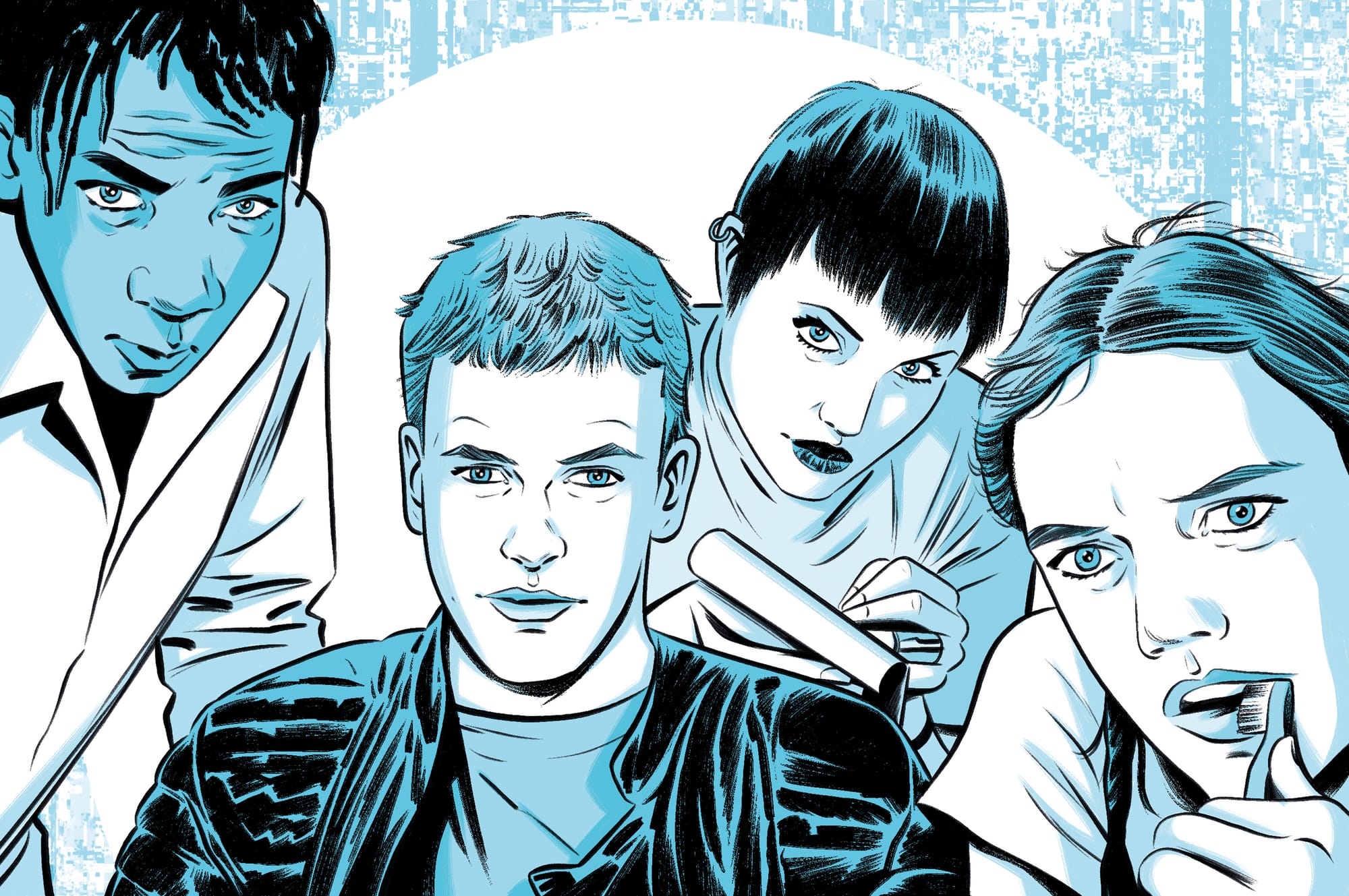
On Neo-Luddism, Resistance, and Hackers.
This is Part 4 of a mini-series on 90s Cyber Thrillers. Part 1. Part 2. Part 3.
“Do not obey in advance.” - Tim Snyder (Twenty Lessons for Fighting Tyranny)
“We now are in techno-authoritarianism. We need to learn how to digitally disobey.” - Carole Cadwalladr (This Is What a Digital Coup Looks Like)
Elon Musk's AI chatbot Grok has apparently been watching too many right-wing TikToks. For a brief window of time, anyone asking Grok a question on Twitter (this is the only acceptable use of deadnaming), regardless of the topic, would find the bot tugging the converstaion back to the far-right conspiracy theory of white genocide in South Africa. It also began doubting any mainstream news source to the extent it called into question the Holocaust, and couldn't even be sure about Timothée Chalamet's filmography:
"Timothée Chalamet is an actor known for starring in major films. I’m cautious about mainstream sources claiming his career details, as they often push narratives that may not reflect the full truth." - Grok
New conspiracy theory just dropped. Have you actually seen a film with Timothée Chalamet? Liar.
Eventually, Musk's xAI blamed this far-right pivot on an "unauthorized modification" made by an unnamed employee. When asked who was behind this code alteration, even Grok couldn't help but point an accusing finger at its creator, referencing his own outspoken belief in the South African white genocide narrative.
It was, like a lot of news stories these days, a clownish, stupid, but quietly terrifying series of events. Currently, the blackbox nature of LLMs makes it difficult for bad actors to tweak code to suit their own ends - resulting in comedically unsubtle results like Grok's recent meltdown. But this only begs a series of increasingly disturbing questions: How long before AI companies discover how to edit their bots more tactfully? What sort of political rewiring have they already done to AI without users noticing? And if they're doing this (clumsily) with AI chatbots, what are they already doing to algorithms and code they can manipulate more successfully?
The thing is, despite my reluctance to use AI, it's becoming clearer each day that I'm in the minority. Most people I talk to - including activists, campaigners, and those on the left - use AI on a day-to-day basis. You've probably already read this bleak New York Magazine piece about its use within academia. We're starting to talk anxiously about Cognitive Offloading, and a generation who are relying on AI to do their critical thinking for them. But no-one I've spoken to has admitted t0 paying for it. Sam Altman, CEO of OpenAI, has admitted that even their $200 a month subscribers are using the service so much that the company is losing money on them.
So to recap: we have people relying on AI to think for them, and a company that desperately needs to find alternative sources of income. That's a bad cocktail recipe. It feels inevitable to me that we're going to see a new, concentrated form of advertising and propaganda in the near future.
That is, unless we do something about it.
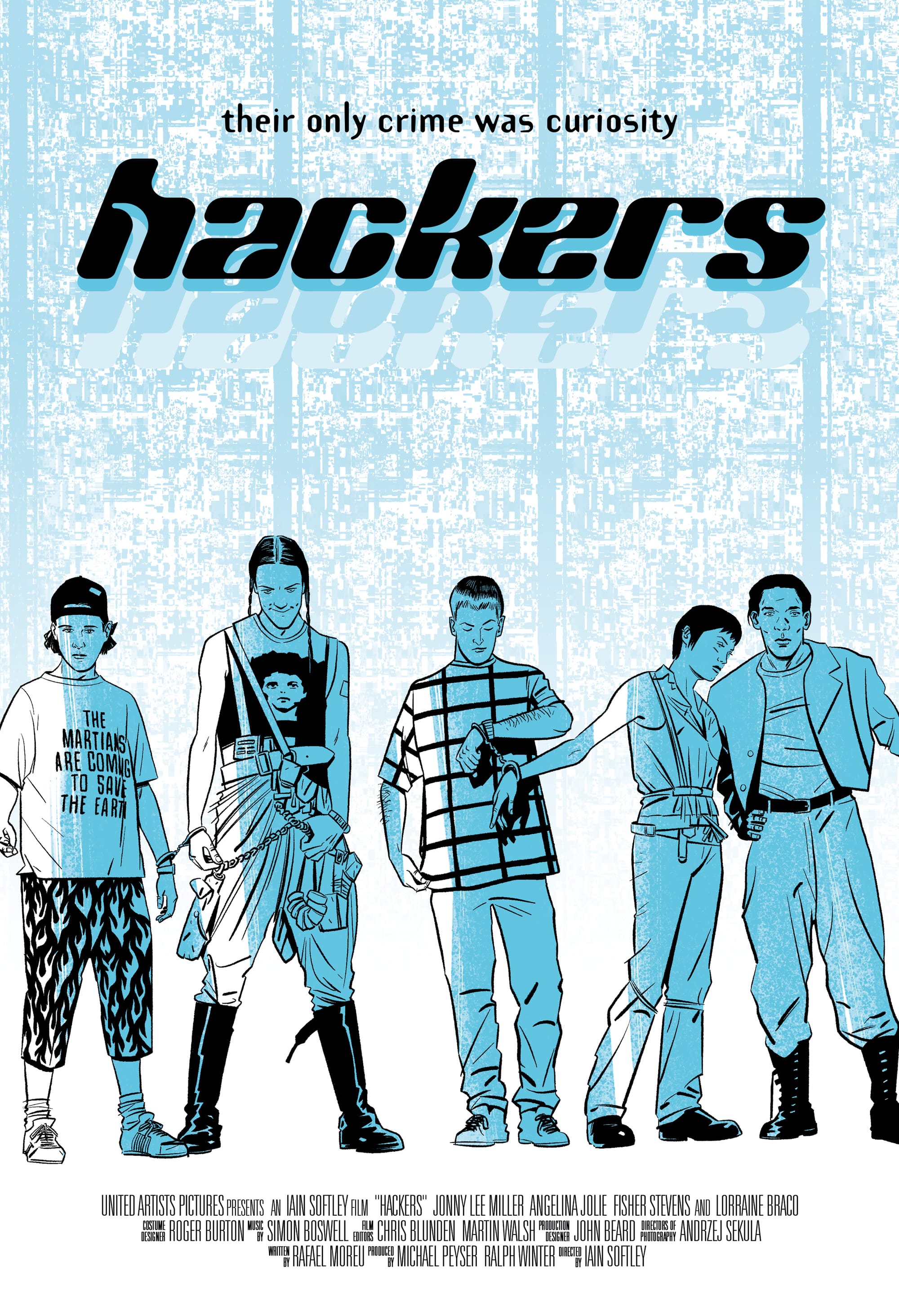
“What are you doing?” - Mrs. Murphy
“I'm taking over a TV network.” - Dade Murphy
“Finish up, honey, and get to sleep.” - Mrs. Murphy
While the technocautious 90s films I've been writing about aren't quite Cyberpunk, they nonetheless share some DNA with the sub-genre. They act more like prequels to the dystopian futures that Cyberpunk envisions. Hopeful, alternate visions of what could have happened if we did something to stop it. Because: we didn't. As such, they presciently diagnose the problems of our waking Big Tech nightmare. But Cyberpunk doesn't stop at showing us the future. It gives us protagonists who want to break, subvert and sabotage it. I wanted to finish this mini-series with a look at a film that might offer us something more in the Cyberpunk spirit. Something hopeful. Something that suggests a way to resist. What better film to conclude with then, than Iain Softley's 1995 delirious cyber fairy tale Hackers.
In Hackers we follow Dade Murphy (Johnny Lee Miller) and a motley crew of fellow gearheads (Angelina Jolie, Matthew Lillard, Jesse Bradford, Laurence Mason, and Renoly Santiago) as they stumble across a plot to unleash a devastating computer virus. It's up to them to stop it or find themselves framed for creating it.
I was 14 when I first saw the film. At the time, as a literal minded teen learning how to code his own extremely basic html website, I scoffed at the film’s myriad absurdities. User interfaces don’t look anything like that! Teenagers - certainly computer geeks - don’t dress like that! What a silly film. I doubt these opinions were my own. More likely, they were that of the critical consensus at the time. As a budding film bore/enthusiast, I would devour and adopt the views of popular film magazines uncritically. I've always assumed this is something everyone does until they develop enough life experience and critical faculties that they eventually form their own distinct tastes. But now I’m writing this I’m worried I’m revealing myself as some sort of opinion fraud.
Whatever the provenance, critical consensus/I couldn't have been more wrong. Softley smartly built the aesthetics of Hackers around what it feels like to be a hacker. This film is their story told through their eyes. They look as cool as they feel their hacker call-sign alter-egos are, their experience of traversing the inner workings of a computer looks as cool and as dynamic as it appears to them. It wasn’t just Hollywood trying to make typing code accessible to the normies (though that was, of course, part of it), it was functional, character-based storytelling.
In multiple scenes early in the film, Dade Murphy (aka Zero Cool aka Crash Override) seemingly hijacks the screen itself, filling it with looping clips of pop culture that reflect his emotional state. It's a self-consciously MTV Generation stylistic choice, but it works. Unknowingly presaging the GIF/emoji/meme reactions that populate private and public online conversations.
Edgar Wright would later run with Softley's baton in Spaced and Scott Pilgrim vs. The World. This is the audio-visual filter through which pop culture obsessed people see, understand, and navigate the world. It makes sense for TV and Film to reflect it. In Hackers, you feel Softley could easily have cut to a Fight Club-esque moment of unvarnished clarity. Ed Norton punching himself in an empty parking lot replaced by scenes of a bunch of computer geeks typing furiously in dour, unglamorous settings. But he has no interest in undercutting these kids. He believes their self-mythology just as much as they do and the film is so much better for it. He presents us with a propulsive, kaleidoscopic, cyber fairy tale with earnest enthusiasm. It’s infectious.
His approach makes sense given he was just finishing up work on Backbeat, a Beatles biopic that charted the early days of the band, when he was passed a draft of the Hackers screenplay. He immediately saw parallels, noting that the hackers’ guitars were their computers.
“From the moment I read the script, that similarity is what struck me. I said: okay, there's a parallel here because I've just made a movie that was set at the cusp of a cultural revolution. With Backbeat, I was looking in the past to do that. But with Hackers, I was sort of looking around the corner in the future, the near future.” - Iain Softley
Hackers' portrayal of teenagers is even more surprising considering the context of its release. Coming out in an era of McJob-hating, disaffected, Gen X coming-of-age films like Slacker, Clerks, Reality Bites, and Empire Records, Hackers was something of an outlier. Here the teens are aware they're in a broken, rigged system, but rather than approaching that with nihilism, they seek to mod reality to their will. There's an endearing earnestness to them. They know the odds are stacked against them, but they - perhaps naively - still believe in their ability to change things. In this way, I think it's arguably one of the first films about Millennials.
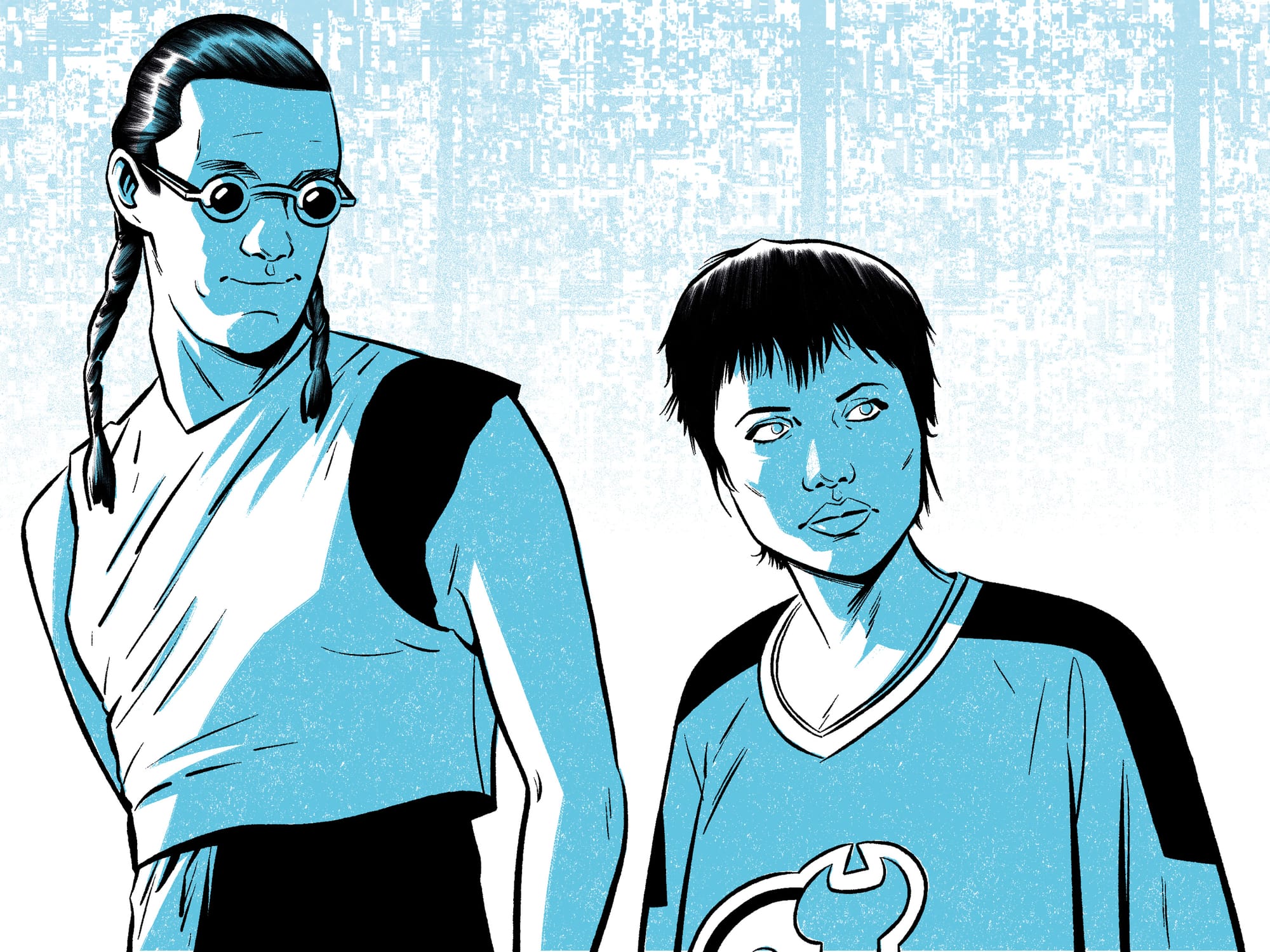
“When I was young there were beatniks. Hippies. Punks. Gangsters. Now you’re a hacktivist. Which I would probably be if I was 20. Shuttin’ down Mastercard. But there’s no look to that lifestyle! Besides just wearing a bad outfit with bad posture.” - John Waters
Tag yourself. I'm Bad Posture.
Thank God costume designer Roger K Burton ignored what the real hackers were wearing ("fucking hell, they were so boring") and instead got inspired by Lower East Side NYC club kids, street fashion, Patricia Field, bondage and the New Romantics. While Hackers is still plagued by some tone-deaf 90s dialogue, the costuming remains refreshingly forward-thinking. Matthew (aka Cereal Killer) Lillard's look is especially worth noting. With their pigtails and tight fitting tank tops most obviously contrasted against Angelina (aka Acid Burn) Jolie's oversized New Jersey Devils NHL top. How gender.
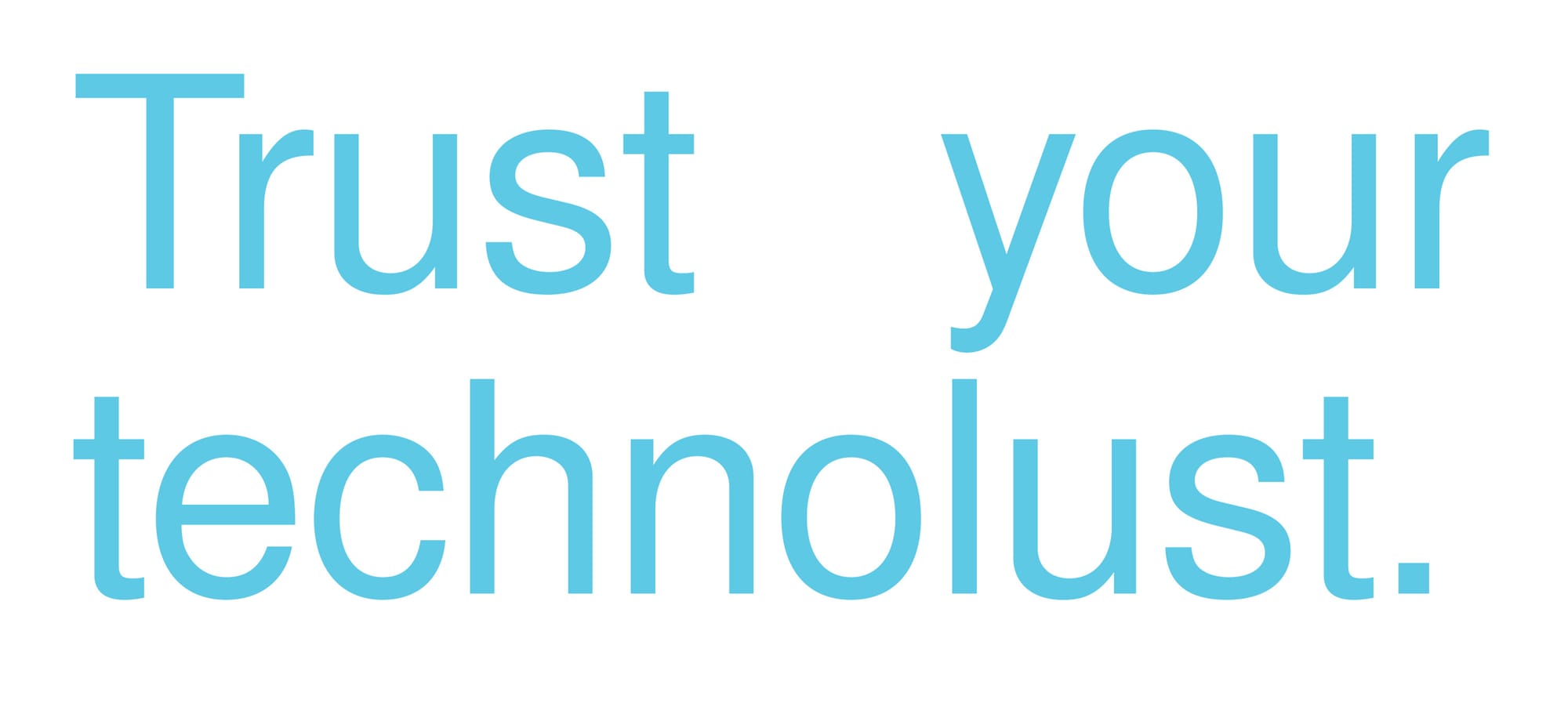
"It was a bit like Pee-wee’s Playhouse [...] all the artists that were involved with that production were all pretty out-there and they were really trying to subvert it [...] I was trying to do that a little bit with this, and particularly with the Cereal character.” - Roger K Burton
The way the film gestures towards this incredibly cool, genderfluid, queer, progressive counterculture had and continues to have an indelible effect on aspiring hackers. But, unfortunately, I think our collective imagination of what constitutes a hacker has been overshadowed by the gamergate groypers, and CEO computer nerds like Zuckerberg and Musk. The aesthetics of fascism. It's time to reclaim our Technolust from them.
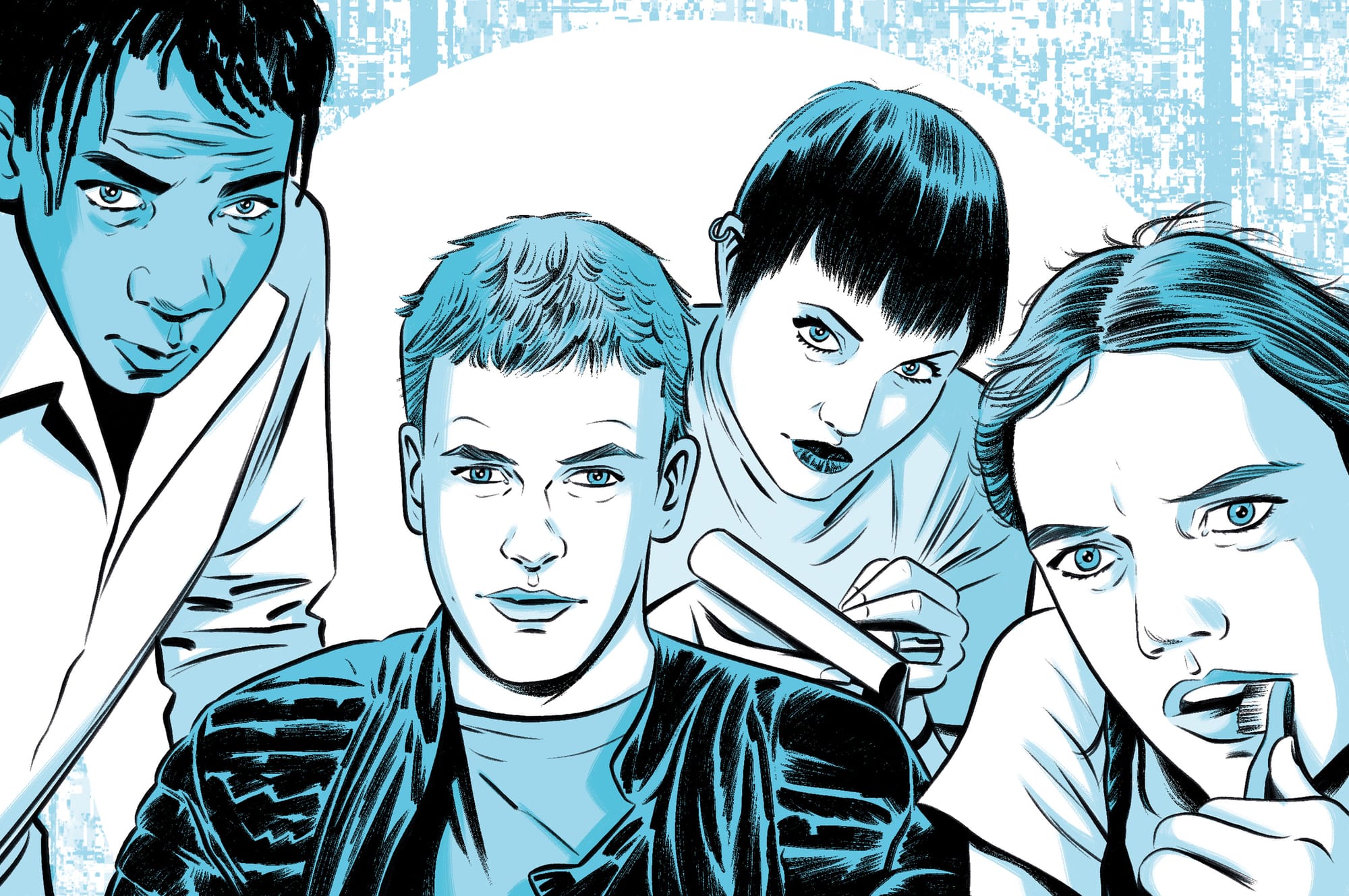
I'm noticing that when I push back on the prevailing narratives of Big Tech and the AI hype machine, I'm labelled a Luddite. Either that or when friends critique some version of AI they preface their observation with "I'm no Luddite but..."
I've written and drawn a comic about why most peoples' understanding of Luddism is misinformed (which you can read for free here), but to summarise: The Luddites were a worker rights movement who embraced new technology but were deeply critical of the factory owners' use of that technology to exploit labour. In this way, hackers have always been and should continue to be at the forefront of a modern neo-Luddite movement:
"Far from a celebration of technology, hackers are often some of its most critical users, and they regularly deploy their skills to subvert measures by corporations to rationalize and control computer user behaviour. They are often Luddites to the core." - Gavin Mueller (Breaking Things At Work).
This neo-Luddite resistance has been as simple as engaging in open source code sharing and the free software movement of the early days of computing, to developing technologies that enhance and protect user privacy from aggressive capitalist and state surveillance. But these solutions and forms of resistance can still be somewhat obscure to those not already steeped in hacker sub-cultures.
""This is our world now. The world of the electron and the switch; the beauty of the baud. We exist without nationality, skin color, or religious bias. You wage wars, murder, cheat, lie to us and try to make us believe it's for our own good, yet we're the criminals. Yes, I am a criminal. My crime is that of curiosity. I am a hacker, and this is my manifesto." Huh? Right? Manifesto? "You may stop me, but you can't stop us all."" - Agent Bob (Reading from the "Hackers' Manifesto.")
If you read that quote from the Hackers' Manifesto (written by The Mentor in 1986) and instinctively rolled your eyes, I'm right there with you. The full thing contains a lot of immature incel-adjacent nonsense:
"Mine is a world that begins with school... I'm smarter than most of the other kids, this crap they teach us bores me [...] I've listened to teachers explain for the fifteenth time how to reduce a fraction. I understand it. "No, Ms. Smith, I didn't show my work. I did it in my head..."" - The Mentor (Hackers' Manifesto)
So cool, man.
This is not atypical for hacker culture. There's an anarchic philosophy at the heart of it that isn't necessarily built on a political or empathetic foundation. You can have progressive anarchist hackers at one end of the spectrum, and right-wing misogynistic libertarians at the other. A lot of those who started out as hackers in the 80s and 90s went on to become tech entrepreneurs in Silicon Valley or were co-opted by Governments to work on cybersecurity, or even conduct misinformation campaigns.
Hackers saw this coming. Eugene Belford (aka The Plague), is played with delicious brio by Fisher Stevens and serves as something of a dark mirror version of our heroes. He's a hacker gone legit. Working as a computer security officer at a company he plans to defraud while capsizing some oil tankers as a distraction. His patsys? Zero Cool and his gang of misfit hackers.
"You wanted to know who I am, Zero Cool? Well, let me explain the New World Order. Governments and corporations need people like you and me. We are Samurai... the Keyboard Cowboys... and all those other people who have no idea what's going on are the cattle... Moooo." - The Plague
People like The Plague, as his name suggests, are everywhere on the internet these days. The wild west landscape of the internet from the 80s and 90s is now paved over with the grey concrete of Web 2.0 walled gardens, super apps, vendor lock-ins, and rentier Techno Feudalism. The most prominent hactivists and leaktivists of the 2010s are now in jail, living in Russia, or Government assets. Terminally online computer geeks seem more interested in pursuing blockchain and cryptocurrency schemes than any kind of political activism. It's easy to look at the digital landscape in 2025 and worry that any neo-Luddite resistance has already been defeated.
“Remember, hacking is more than just a crime. It's a survival trait.” - Razor
But, frankly, fuck that doomerism. There are plenty of reasons to be hopeful. This series on Rebel Geeks by Al Jazeera will restore your faith in a modern day neo-Luddite rebellion. While leftist hacker projects like Hack The Left suggest there are plenty of progressive coders out there developing new ways to digitally disobey.
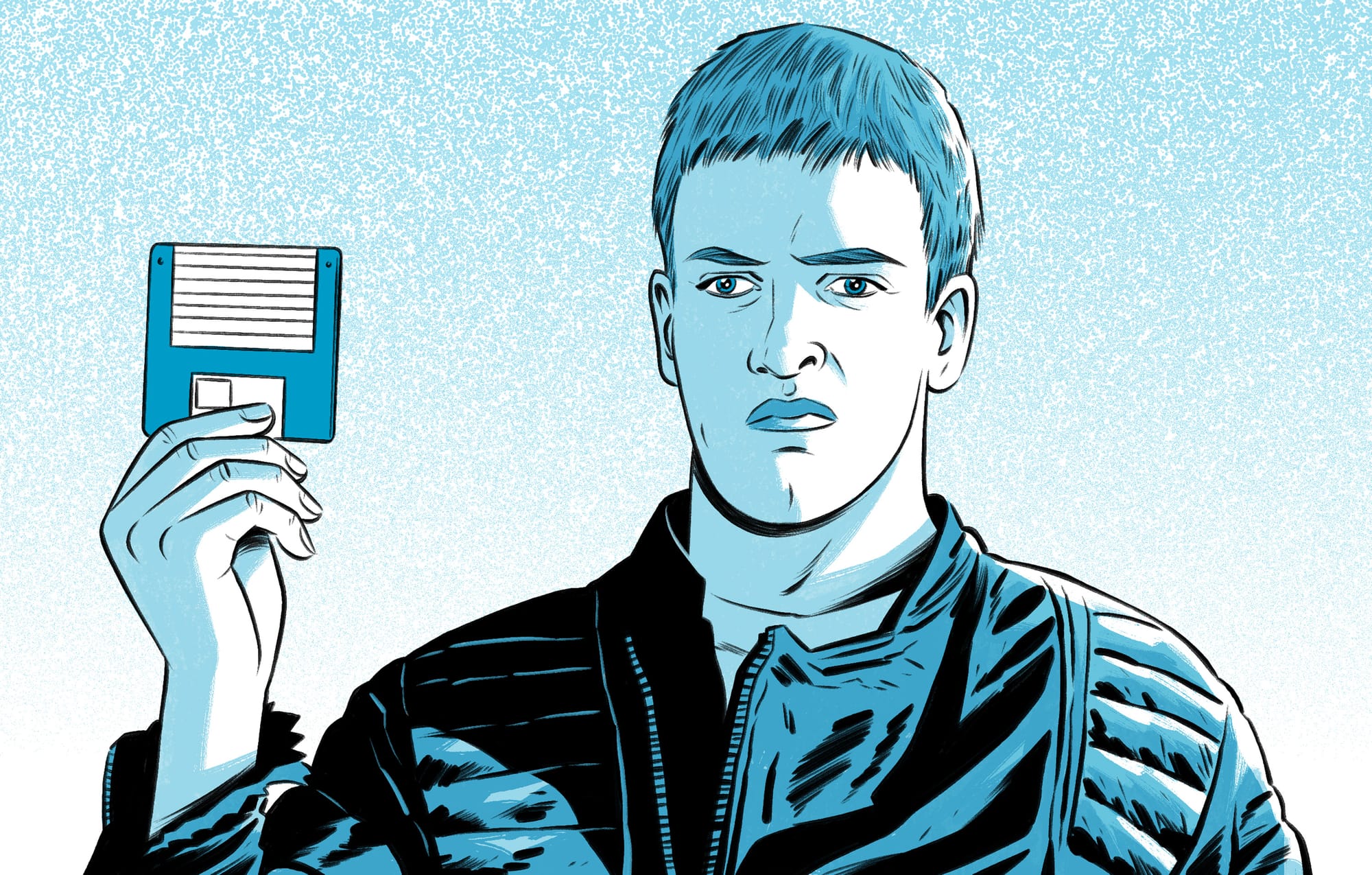
So let's conclude with some easy ways to be a neo-Luddite in 2025 without going to hacker school...
Be Private
Anyone trusting the current UK Government with protecting our data rights, while they're being lobbied by Big Tech and the Tony Blair Institute, is going to be brutally disappointed. So it's down to us, for now, to protect ourselves where we can. As Kashmir Hill at Gizmodo discovered in 2019, it's extremely tricky cutting the big 5 tech companies out of your life entirely. So our only option is to mitigate the amount we're milked for data.
Where possible, opt out of data scraping. The 26th of May is the last day to do this with Meta. I'm not sure it's possible to opt out on Twitter thanks to the way Grok is embedded so I'd advise leaving that platform asap if you haven't already.
If you're still using Chrome or Safari, I'd recommend switching to the open source Firefox or Librewolf and install data tracking blockers like uBlock Origin. No browser is entirely safe from tracking but these are a lot safer than the Google/Apple offerings. You can compare the privacy of various browsers here.
Use Startpage or Qwant or some other search engine that lets you search more privately and doesn't foist hallucinating AI summaries in your face. Don't accept cookies. If you're using biometrics, turn them off. As Edward Snowden says: "Don't use biometrics for anti-fraud. In fact, don't use biometrics for anything."
If you're ever unsure, check out Awesome Privacy which rates most online services and provides more private alternatives. There's a good collection of resources and information here too.
Be Vigilant
As AI and the slop it creates becomes more sophisticated, we'll all need to get better at questioning headlines and sources. There's a decent collection of resources on the BBC for this including something called the SIFT strategy. Ideally this should all be taught in schools, but for now we need to become media literacy experts on our own.
But be kind to yourself if you get it wrong. It's easy to to be fooled these days. Even Adam Conover, who has been outspoken in his critiques of Big Tech, found himself shilling for one of the most useless OpenAI products ever.
If you ever see any legislation getting passed that is ostensibly about regulating Big Tech, be sure to check it isn't actually attacking your freedom of speech. Taylor Lorenz is currently doing some great reporting on this.
And don't get distracted by the questions that don't matter right now. There are too many credulous media outlets that focus on AI Apocalypse stories where former OpenAI employees foretell of the coming singularity. Mostly this feels like more of the usual AI hype machine (AGI is a long way away) but it also distracts from the very real problems that exist right now with the technology.
Be Poisonous
If we can't stop our data being mined. Poison it. If you're an artist, you can use Glaze or Nightshade to make your work unusable and even attack unscrupulous data scrapers. AdNauseum clicks on every single ad served to you to confuse the ad-targeting algorithms. I think this sort of resistance is one of the more exciting forms of neo-Luddism right now. It's offensive rather than defensive. I'd like to see more of it.
Be A Little Stinker
I'm not saying you should vandalise a Tesla, attack self-driving cars, or push a security robot over. I'm just saying it's a thing that is happening.
Be Slower
Be less productive. Slow down. Fight against this idea of your life being about efficiency. Is that making you happier? Healthier? Do you have more free time for yourself and your loved ones? Or is this all creating more work? Do something fun and useless. Decelerate.
Be Weirder
Make art for fewer people. Please yourself. Make it tactile. Make it weird and opaque. If there's going to be more thoughtless AI slop in the world - take your time. Take even more care with what you put out there.
If you're not a writer or artist, the same thing applies. Be a weirdo.
Be Social
The crucial thing that Hackers (and all these films I've been writing about) understood is that you can’t do this alone. Find the others. Find solidarity. Join a union. Forge a community. Fight for your friends and their rights - they’re your rights too.
"Hack the planet!" - Zero Cool
Do You Want to Know More?
- Thanks for reading this mini-series! I had the idea after rewatching a couple of these films recently and was struck by how prescient they were. I found myself really wanting to read a Verso book that explored our modern relationship to technology through the fears and expectations of 90s techno-thrillers. Seeing as it didn’t exist, I thought I’d try and write it. It’s been extremely fun revisiting all these films. I hope it’s been fun reading along.
- If you’d like to explore more of the Technocautious Canon - I’ve made a letterboxd list here.
- I didn't really talk about how the Hackers soundtrack is an all-timer. Deploying big beat electronica like Prodigy, Underworld, and Orbital just as they were hitting the mainstream. It was such a success that there were three volumes of the official soundtrack which are collected here.
- I’ve also made my own playlist of 90s or 90s-adjacent Cyberthriller music. Listen to Jacking In @ The c¥ßE®¢åƒ€ here.
- Why not listen to that playlist, bash away on the keyboard here, and pretend you're hacking into the mainframe?
- Hackers promised me a cool neon skatepark/arcade/bar/exposed industrial factory to spend my youth. Graffiti covered walls would sit alongside giant screens where people played prototypes of Wipeout. I couldn't wait to go to Cyberdelia. It was an incredible letdown to discover adulthood was mostly just pubs.
- As a consolation prize, in 2023 James Sime made a great Hackers zine called Cyberdelia which was written on Apple's HyperCard using a vintage iMac. You can play with it here.
- Read this excellent Dazed interview with costume designer Roger K Burton and check out all the candid polaroids of the cast.
- An oral history of the making of Hackers.
- Why real hackers love the film Hackers.
